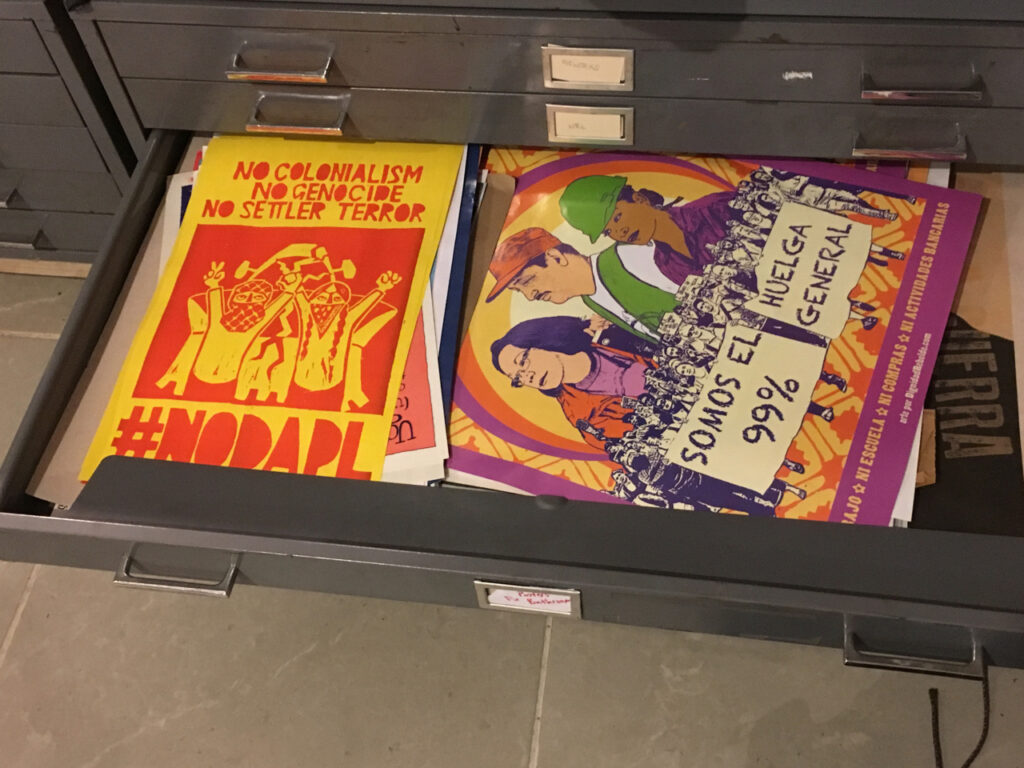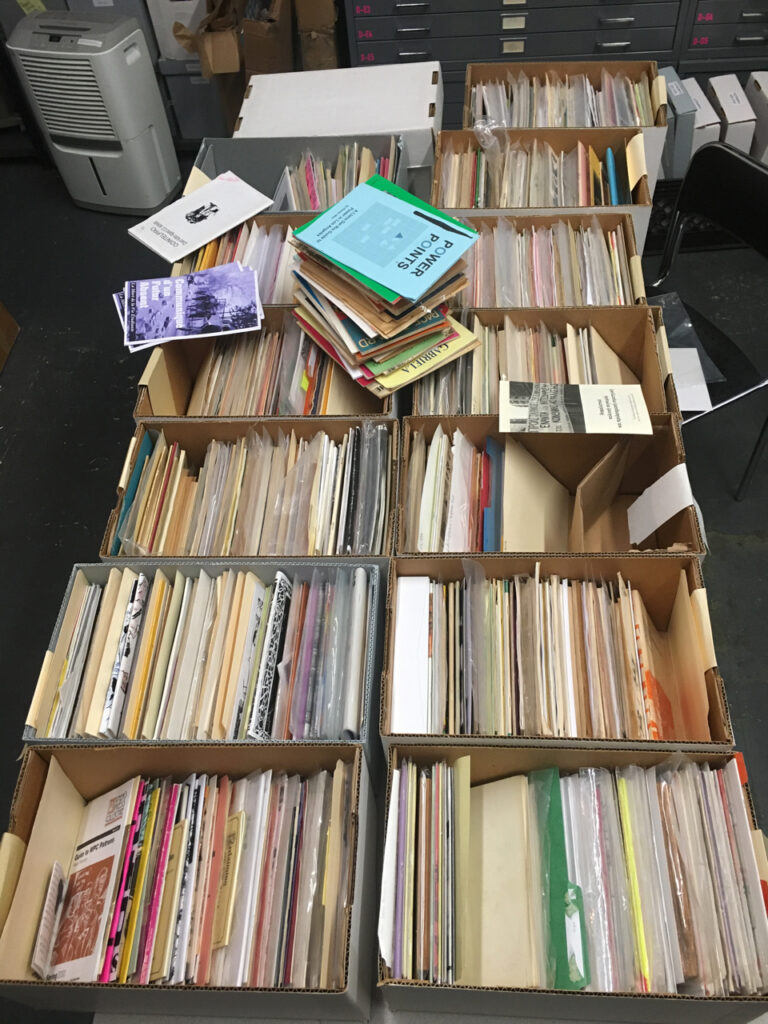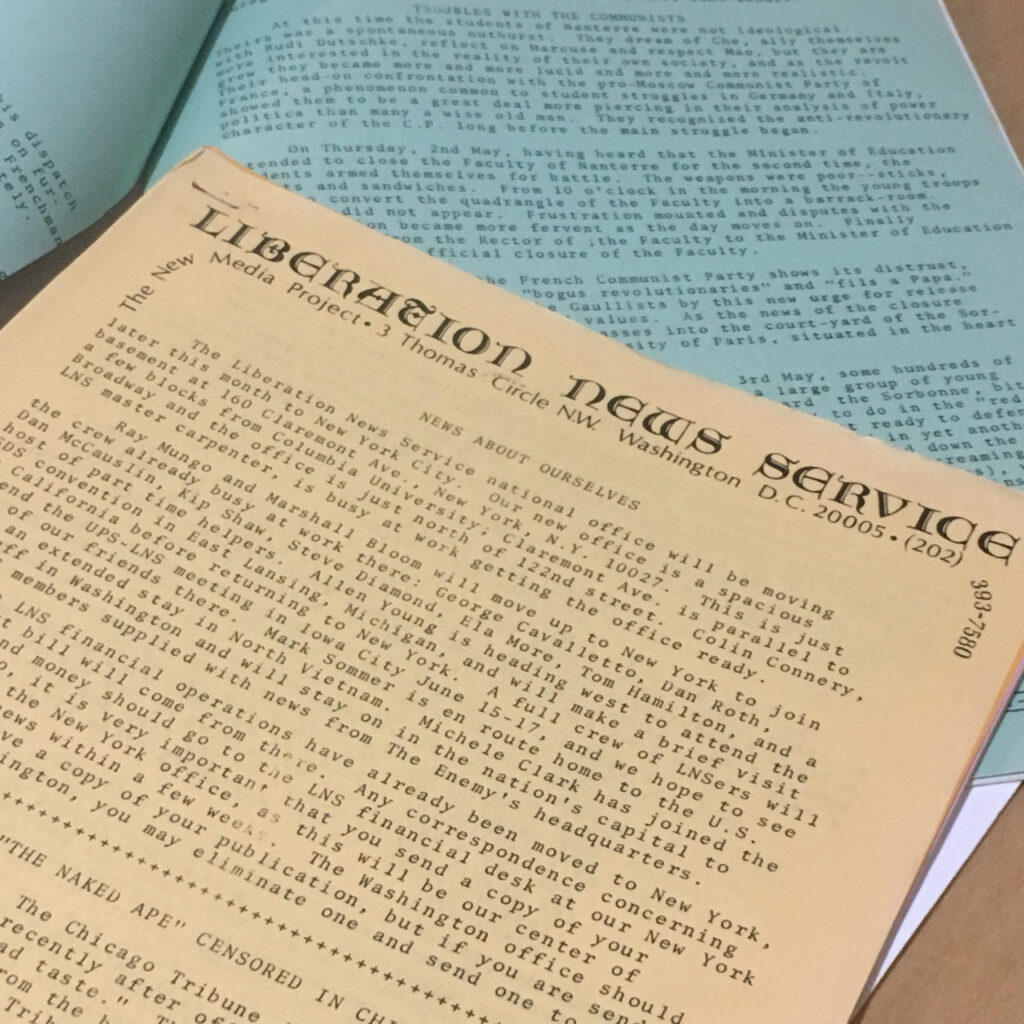Interference Archive grew out of the personal collections of two politically active cultural producers, and has since expanded to include tens of thousands of items created as part of social movements around the world, by the participants themselves. Our collection is shaped by people who have historic material that they believe will add to narratives that exist in our archive, or that can fill gaps created by material we don’t have. For us, making this material accessible to the public is an act of preservation, not only of the physical materials, but of the collective history of those struggling for social change.
The material we collect and preserve represents the history and cultural production of social movements–everything from posters and prints, buttons, t-shirts, periodicals, pamphlets, zines, books, moving images, audio recordings, and other ephemera.
We believe that these materials should be held in common: they belong to all those who played a part in their creation. For Interference Archive, making this material accessible to the public is an act of preservation, not only of the physical materials, but of the collective history and memory of those struggling for social change.
Interference archive collects material produced by social movements around the world.
We only collect materials produced in multiples for widespread distribution. This includes a broad range of materials; some examples are: posters, flyers, newspapers, magazines, t-shirts, vinyl records.
If you think that your stuff belongs in our collection, please read the information below about what we can and can’t handle, and how we will use your donation:
We will do our best to preserve materials in the collection, but our primary objective is that they are accessed and used, so do not give us materials that you feel cannot be handled extensively. For this reason, we only collect material that was originally produced in multiples for widespread distribution. We do not accept personal or organizational papers, manuscripts, obsolete media, or one-of-a-kind works of art.
Please do not donate material that would require any kind of access restrictions. Our goal is to manage an archive of material that can be accessed and used by anyone who walks through our door. Please only give us material that you think can be handled by the public.
Material we cannot accept includes:
- Materials that you feel cannot be handled extensively because of significant damage or decay (like paper that crumbles when touched, or materials that are moldy).
- We will perform basic cleaning and will repair rips and tears, but we do not have the resources to perform extensive conservation. If we receive materials that are beyond repair, or could cause serious damage to other items in our collection, we may donate them to an institution with resources to preserve them, return them to you, or dispose of them if you do not want them back.
- Materials which would require restricted access due to privacy concerns.
We have limited space, so we cannot keep more than 1 or 2 of any item. If you are able to send us an inventory of materials before you donate them, we can check to see if we have duplicates.
If you send us items which already exist in duplicate in our collection, we will either send these materials to other collections so they can be shared with people elsewhere, or use these materials to fundraise for Interference Archive. If it is important to you that every single item you donate remains in the collection, please communicate that with us.
Do you have questions about this? Do you have something to add to the Interference Archive? Please get in touch with us at info@interferencearchive.org
Visitors are free to explore our collection. We are an “open stacks” archive. Open stacks means that you can go to the shelves to access things on your own, without putting in a request to see materials.
Material in our collection is organized by format; within each format, material is organized either by subject, or alphabetically by title. Labels on boxes and shelves to help figure out what’s there, and a volunteer staffer is always available to provide some guidance for your search. We hope you enjoy browsing, and discovering things you didn’t even know to look for!
We ask that visitors be gentle with our collection: wash hands first, and then take one box off the shelf at a time and put it back where it came from. Volunteers are available to help with heavy boxes. When handling material, make sure large objects (newspapers and posters) have space to lie flat as you look at them.
Visitors are welcome to take photos. If any other people are going to be in your photos, please check that they are alright with being photographed.
Our online catalog includes a very small amount of our collection. You can search that at catalog.interferencearchive.org


